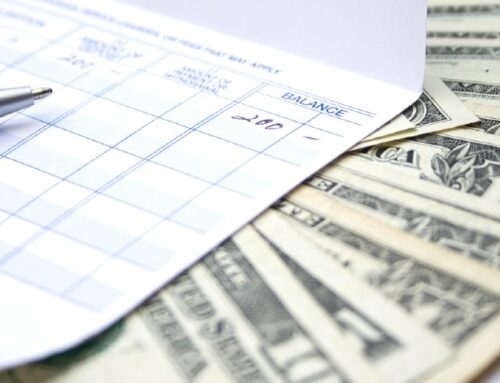Home equity lines of credit (HELOCs) enable homeowners to leverage the equity they have built in their homes. If you’re considering a HELOC, it’s essential to grasp the fundamentals of interest rates, payments, and more.
In this article, we’ll cover the basics of what a HELOC is, how it works, and key considerations and questions for potential borrowers.
What Is A HELOC And How Does It Work?
A Home Equity Line of Credit (HELOC) is a form of revolving credit that allows homeowners to borrow against the equity in their homes. Equity is the difference between the home’s current market value and the outstanding mortgage balance. HELOCs consist of two main phases: the draw period and the repayment period.
During the draw period, typically lasting 5 to 10 years, homeowners can borrow from the credit line as needed. They only pay interest on the amount borrowed. After the draw period, the repayment period begins, during which borrowers must repay both principal and interest.
What Credit Score Do You Need For A HELOC?
Credit score requirements for HELOCs vary among lenders, but generally, a good to excellent credit score is preferred. A credit score of 700 or higher is often recommended to secure favorable terms and interest rates.
Lenders also consider other factors, such as debt-to-income ratio, home equity, and employment history when evaluating HELOC applications.
What Interest Rate Can You Get For A HELOC?
HELOCs often have variable interest rates tied to a benchmark, such as the prime rate. The interest rates can fluctuate during the life of the loan, impacting monthly payments. Some lenders may offer introductory fixed-rate periods at the beginning of the HELOC.
A higher credit score can translate to a lower interest rate. Lenders may offer more competitive rates to borrowers with strong credit histories, as they pose a lower risk. Conversely, borrowers with lower credit scores may be charged higher interest rates to compensate for the perceived risk associated with their creditworthiness.
Can I Shop Around For A Good Interest Rate On A HELOC?
It’s crucial for borrowers to shop around and compare HELOC offers from different lenders. Each lender may have its own criteria for determining interest rates, so comparing multiple options gives you a better understanding of the market.
HELOCs may offer different terms, including the length of the draw period, repayment period, and any introductory fixed-rate periods. Consider how these terms align with your financial goals. A longer draw period may provide more flexibility, while a shorter repayment period may lead to higher monthly payments.
Once you’ve gathered multiple offers, don’t hesitate to negotiate. Lenders may be open to providing discounts or adjusting terms to secure your business. Be prepared to leverage offers from one lender against another to get the most favorable terms.
How Do You Access Funds With A HELOC?
HELOCs offer flexibility in accessing funds. Borrowers can use checks, credit cards, or online transfers to draw money from the credit line. The funds can be used for various purposes, such as home improvements, education expenses, or debt consolidation.
Can I Open A HELOC And Not Use It?
Yes, you can open a HELOC and not use it immediately. A HELOC serves as a revolving line of credit, meaning you have the flexibility to draw funds as needed during the draw period. The draw period typically lasts 5 to 10 years, during which you can borrow and repay funds. You are not obligated to use the entire credit limit, and interest is only accrued on the amount borrowed.
How Long Do You Have To Pay Back A HELOC?
After the draw period, the repayment period begins, lasting around 10 to 20 years. During the repayment period, you can no longer borrow funds, and you must repay both the principal and interest. Monthly payments may increase, as you are paying off both the principal and the accrued interest. It’s crucial to understand the terms of your specific HELOC agreement and be prepared for potential changes in monthly payments.
What Are The Tax Implications Of A HELOC?
Interest on a HELOC used for home improvements that increase the value of your primary residence may be tax-deductible. Funds used for other purposes, such as paying off credit card debt or financing a vacation, may not qualify for a tax deduction.
To benefit from potential tax deductions, it’s important to keep detailed records of how the HELOC funds were used. This documentation can be valuable when claiming deductions. Consult with a tax professional to understand the specific implications based on your situation.
What Is Better: A HELOC Or Refinance?
The decision between a HELOC and refinancing depends on your financial goals and circumstances.
A HELOC offers flexibility with a revolving line of credit, allowing you to borrow as needed. It’s ideal for short-term expenses, such as home improvements or education costs.
On the other hand, refinancing replaces your existing mortgage with a new one, potentially securing a lower interest rate and fixed monthly payments. Refinancing is suitable for long-term financial planning, such as reducing overall interest costs or consolidating debt.
As with any financial decision, it’s advisable to carefully review the terms and consult with a financial advisor to determine the best approach for your specific situation.
Let Arizona Central Credit Union Help You Meet Your Needs
A HELOC can be a valuable financial tool for homeowners seeking flexibility in accessing their home equity. Understanding the basics, including the option to open a HELOC and not use it immediately, credit score requirements, repayment terms, and the comparison with refinancing, is essential for making informed decisions about managing your home equity.
Arizona Central Credit Union can help you get a HELOC to meet your needs. Find out more about our Home Equity Line of Credit terms. Also, explore our wide variety of checking and savings account options that can help you start building your future. If you have any questions about opening an account, contact us online or call (866) 264-6421.




